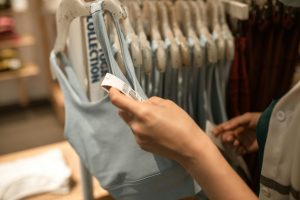Shopping for Sustainability: Understanding Certifications and Labels
When it comes to shopping, consumers are becoming increasingly conscious of the impact their purchases have on the environment and society. As a result, the demand for sustainable and ethically produced products has risen significantly in recent years. However, with so many certifications and labels claiming to signify sustainability, it can be overwhelming and confusing for shoppers to navigate the market. In this article, we’ll delve into the world of sustainability certifications and labels, breaking down what they mean and how to choose products that align with your values.
The Importance of Shopping for Sustainability
In today’s society, where climate change has become an urgent issue and social injustices are gaining more attention, consumers are seeking ways to make a positive impact with their purchasing power. Sustainable shopping means making conscious choices that consider not only the quality and price of a product but also its environmental and social impact. By choosing sustainable products, consumers can reduce their carbon footprint, support ethical production practices, and contribute to the overall well-being of the planet and its inhabitants.
Understanding Certifications and Labels
One of the challenges consumers face when shopping sustainably is deciphering the various certifications and labels that claim to signify sustainability. While some labels may be legitimate, others may be misleading or even meaningless. Knowing the difference can help shoppers make more informed and responsible choices when it comes to their purchases.
Organic Certifications
One of the most well-known sustainable certifications is “organic.” When a product is labeled as organic, it means that it has been produced using methods that promote ecological balance and conserve biodiversity. However, there are different levels of organic certifications, and not all are created equal. The USDA Organic label, for example, signifies that a product is made with at least 95% organic ingredients, while the “Made with Organic” label means that a product contains at least 70% organic ingredients. To ensure that a product is truly organic, look for certifications from trusted organizations such as the USDA, Ecocert, or Soil Association.
Fair Trade Labels
Fair trade labels guarantee that the product was produced in an ethical and sustainable manner. This means that the workers involved in making the product were provided fair wages, safe working conditions, and minimal environmental impact. Fair trade certifications are typically given by organizations such as Fairtrade International, Fair Trade USA, and the World Fair Trade Organization. By supporting fair trade products, consumers can ensure that their purchases are not contributing to exploitative labor practices.
Forest Stewardship Council (FSC) Certification
The Forest Stewardship Council (FSC) certification is given to products that come from responsibly managed forests. This label guarantees that the wood used to make the product was harvested sustainably, without causing harm to the environment or local communities. Products such as furniture, paper, and building materials can be certified by the FSC, giving consumers peace of mind that their purchase is not contributing to deforestation or illegal logging.
Cruelty-Free Labels
For those looking to shop for sustainable and ethical beauty or personal care products, cruelty-free labels are an essential factor to consider. These labels signify that the product was not tested on animals, and no animal by-products were used in its production. However, just because a product has a cruelty-free label does not necessarily mean that it is also environmentally friendly. Look for additional labels such as “vegan” or “organic” to ensure that the product meets your sustainability standards as well as being animal-friendly.
The Danger of Greenwashing
In the pursuit of profits, some companies may use sustainability certifications and labels as a marketing tactic without truly meeting the standards they claim to uphold. This deceptive practice is known as “greenwashing.” To avoid falling for greenwashing tactics, it’s essential to do research and look for trusted certifications from reputable organizations. Furthermore, don’t be afraid to reach out to companies and ask for more information about their sustainability practices. Supporting companies that are transparent and genuinely committed to sustainability can make a real difference in the fight against greenwashing.
Conclusion
In conclusion, shopping for sustainability goes beyond just looking for certifications and labels on a product. It requires consumers to do their due diligence and research before making a purchase. By understanding what different certifications and labels mean, consumers can make more informed decisions that align with their values and contribute to a more sustainable and ethical future.










